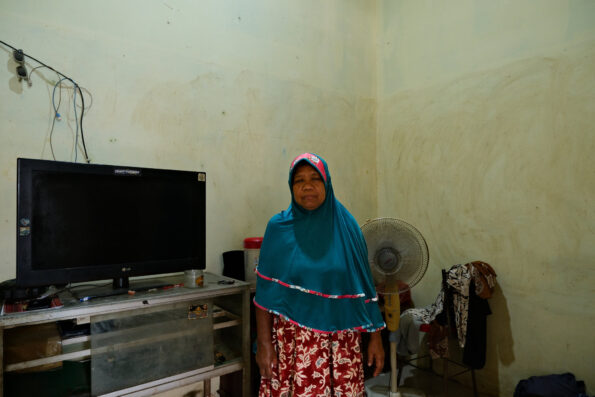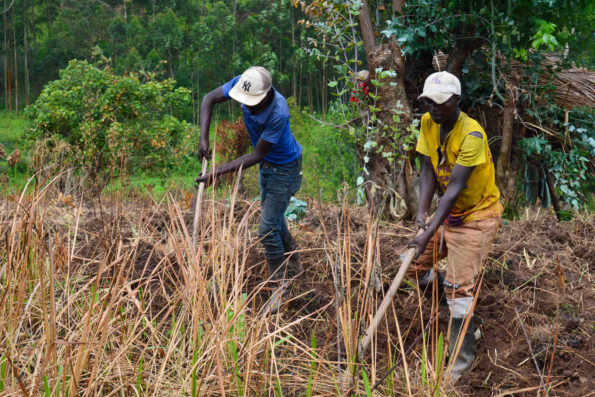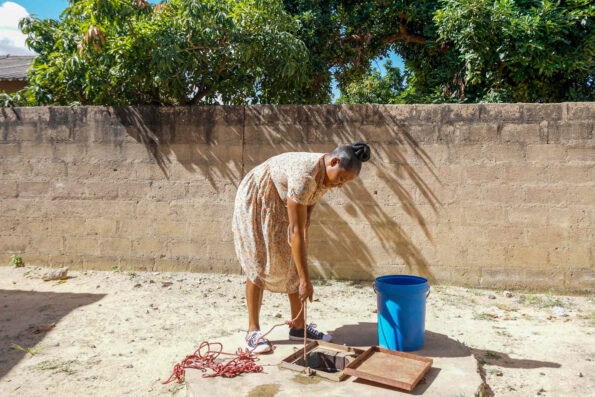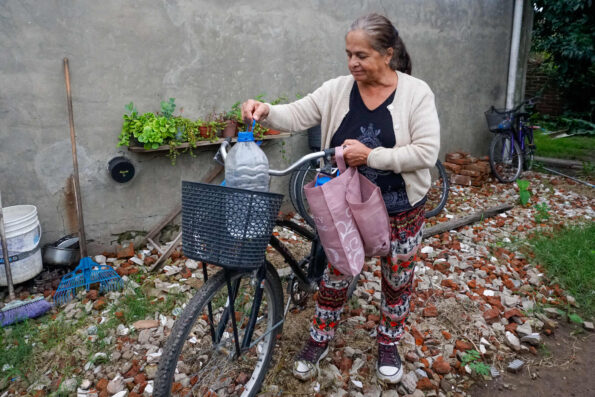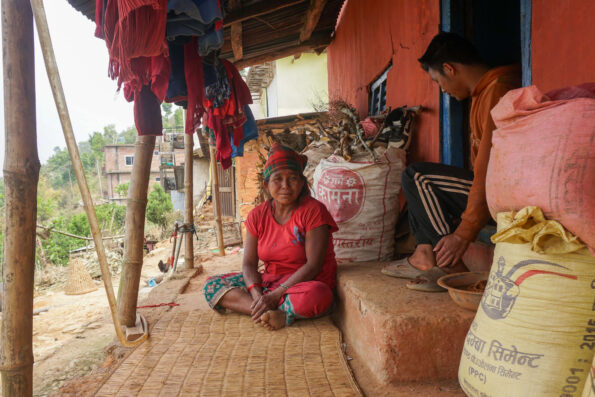
Linda Mujuru, GPJ Zimbabwe
Handa Nyandomba stands in the portion of his home that collapsed during excessive rains in January. Nearly two dozen homes were similarly damaged during that storm, local people say, in part because they were built in a wetland area or because the drainage systems that should have protected them weren’t maintained.
CHITUNGWIZA, ZIMBABWE — Handa Nyandomba stares, motionless, at the portion of his home that collapsed during a January rainstorm.
The 87-year-old says he’s too old to fix it himself. His wife is dead, and his children have migrated to Mozambique.
“I built this house when I was younger; now, because of the rains, a part of my house just fell down,” says Nyandomba.
An estimated 21 homes partially or totally collapsed during January storms in this high-density community near Harare, Zimbabwe’s capital city, and similar scenarios played out nationwide. Excessive rains have left a trail of destruction, especially in low-lying suburbs and in areas where homes were built illegally on wetlands. The destruction was multiplied because of poor or nonexistent drainage systems.
“Chitungwiza lies within a wetland,” says Marvelous Khumalo, the director of the Chitungwiza Residents Trust, which represents the community’s inhabitants.
Trash has partially or totally clogged many drainage areas, Khumalo says, and in some cases, homes, some constructed with poor-quality materials, were built directly in wetlands.
Urban planning criteria are laid out by the Regional, Town and Country Planning Act and by local city councils, which regulate locations and quality standards. Even so, substandard and illegally built and placed homes continue to mushroom in Harare.
Thousands of homes are at risk of falling down, says Sibusisiwe Ndlovu, the acting director of the Civil Protection Zimbabwe, an institution responsible for preparing for emergencies. Many of those homes were poorly built and were not placed in well-drained areas. The city council needs to assume that those homes will fall down and will need to be reconstructed, he says.
“It is something that has to go into the council’s plans,” Ndlovu says.
Rainfall data is not readily available in Zimbabwe. The national Meteorological Services Department does not maintain measurements for specific areas. General information for the whole country is available for a fee, but officials could not immediately specify the cost. The department released multiple alerts on its Facebook page, warning Zimbabweans nationwide of heavy rainfall and flooding in January and February.
Zimbabwe has high standards for city development and maintenance, says Percy Toriro, an urban planner, but those standards are often not enforced.
“Whatever problems we are facing, they are consequences of not following our own rules,” he says.
Zimbabwe has a robust urban planning community, with more than two registered urban planners per 100,000 people — one of the highest rates in Africa, according to data published by the World Bank. There are 3.3 urban planners per 100,000 people in South Africa, but only 0.47 planners per 100,000 in Kenya.
City officials say there’s a simple solution: Just follow the rules.
“Before you put up your house, you need to get authority from council,” says Phillip Mabingo Pfukwa, the director of works for the City of Harare. “There is need for infrastructure that includes roads, sewage system and drainages before people can live in their houses.”
But major bottlenecks in the approval process cause people to move forward before infrastructure is in place, says Kudzai Chatiza, a development researcher with Development Government Institute, a consulting firm. It’s difficult to add roads and drainage systems to a neighborhood after homes have been built.
Often, the infrastructure isn’t added at all. Zimbabwe’s government, plagued by ongoing cash flow problems, has failed to properly invest in the maintenance of infrastructure, including water and sanitation facilities, according to a 2011 report by the African Development Bank.
Ultimately, for some Chitungwiza residents, the quagmire of poor or nonexistent infrastructure and widespread use of inferior building materials led to disaster. When the rainstorms came, their homes crumbled.
When Anna Kamutasa’s home collapsed in the rain, she was left with nowhere to go. The 25-year-old and her two children are staying with a neighbor for the time being.
“At the moment, I do not have money to build the house again,” she says.
EDITOR’S NOTES: No sources in the story are related.
Linda Mujuru, GPJ, translated some interviews from Shona to English.


